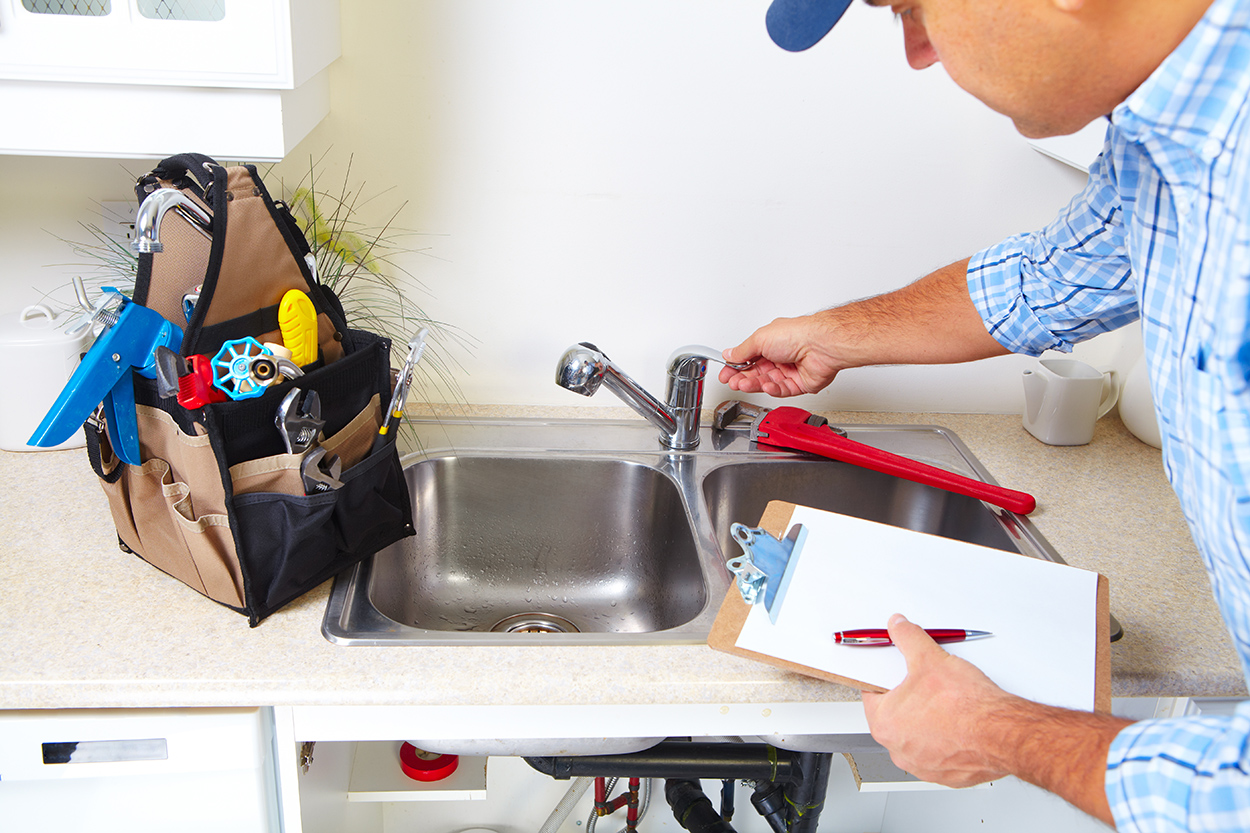
Clogged Drain
It’s an awful site, the water rising up and covering the surfaces in your home. Blocked drains are some of the most common plumbing issues encountered by homeowners. Luckily, not all blocked drains call for professional assistance, and if the issue is minor you can probably fix it yourself with a few tools and a little bit of spare time.
DIY Plumbing
It’s a good idea to know a bit about plumbing rather than reaching for chemical drain cleaners every time you encounter a bit of a clog. These products damage pipes with regular use, and are unable to fix deep blockages or those caused by solid objects such as tree roots. Also, if they seep back out of the drain they can corrode the surfaces in your home and are also a biological hazard.
Homemade alternatives to chemical drain cleaner
•
Boiling water
If your blockage is caused by a build up of sediment or other material, you may be able to flush it away with some boiling water. A few bucketfuls of hot water works well for floor drains and sinks, but make sure you don’t burn yourself when pouring the water into the drain.
•
Baking soda and vinegar
If you haven’t had any success using hot water, you can try mixing vinegar and baking soda to make a low-cost drain cleaner, which is much safer than the corrosive commercially available varieties. Pour these into the drain separately. If you are lucky, the foam will dislodge whatever is causing the drain to clog up.
Using a plunger
If there is standing water present over the blocked drain, using a plunger can exert a significant degree of pressure on whatever is causing the blockage. You can use a plunger in any household drain which is blocked.
Using a plumbing snake
If you have tried the above steps without success, it may be time to turn to the tools of the trade. If you think the blockage is located close to the fixture, you may be able to use a piece of bent wire, such as a coat hanger, to retrieve it from the fixture. For deeper blockages, or those caused by big build-ups of material, a proper plumbing snake with a crank handle may be required. Some drains, such as those on many bathtubs, are fitted with an overflow plate which can be removed for easy access to the relevant pipes. If you are struggling to get your plumbing snake into a drain, try to remove any obstructions such as crosshatches or grids. Manual plumbing snakes can be purchased from most hardware stores and are simple to operate, but if you are unsure, you should call us.
Minimising blockages
There are a few simple plumbing hygiene precautions you can take to minimise manmade blockages:
- Remove all leftover food or napkins from plates, bowls, etc before washing them in the sink.
- DO NOT pour oil or grease down drains or sinks.
- Do not flush anything other than toilet paper and human waste down toilets.
- Purchase a trap screen to stop hair and debris entering your drains.
Call us
If you’ve tried the above but haven’t succeeded, you should call us immediately to minimise the inconvenience to yourself. You may have a bigger problem which requires professional diagnostic equipment and tools to repair.












